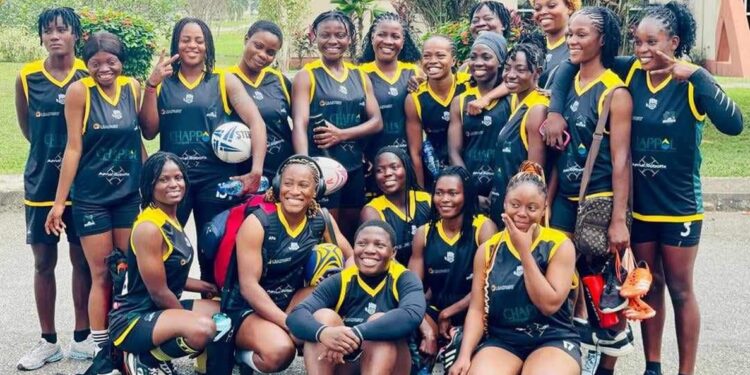Growing Opportunities for Rugby League in Africa
Shifting Focus: Super League’s African Potential
Super League clubs are encouraged to redirect their attention from North America to Africa, including leveraging local communities. Not only does this continent offer emerging fanbases, but it also boasts a multitude of talented athletes—men and women—ready for recruitment.
Nigeria Leads the Charge in Rugby Development
Nigeria has emerged as a significant growth area for rugby league. Currently, five members of Nigeria’s women’s rugby team are eager to connect with English clubs ahead of the World Cup tournaments next year. Ade Adebisi, a former player now at the helm of Nigeria Rugby League, advocates for tapping into Africa’s resources and believes there is an abundance of talent yet to be discovered.
Adebisi indicates that while matches like Wigan versus Warrington and England’s women’s encounters with Australia’s Jillaroos may capture headlines in Las Vegas on March 1, the real opportunity lies within African nations.
Engaging with Communities: A Model Partnership
“The focus should be on development opportunities within Africa,” Adebisi asserts. He highlights that Nigeria’s population exceeds 200 million people, making it a key market often overlooked by Super League teams. The reality is that among the largest African communities residing in England are Nigerians—a fact often neglected by major clubs.
Salford Red Devils’ collaboration with Ghana serves as an exemplary model for how Super League teams can engage authentically with local communities. Their sustained commitment through events has fostered strong ties that could eventually lead to recruiting talented African players.
“If executed correctly,” Adebisi states, “this partnership could yield substantial support from new fans who would take a keen interest in football.” He points out existing talents such as Junior Nsemba (from Cameroon) and Kruise Leeming (linked to Eswatini), emphasizing there are countless more players across Africa waiting for their opportunity.
Unlocking Talent: The Commitment Required
According to Adebisi, if Super League clubs can provide chances for these players within the UK leagues, they may experience a significant shift in recruitment strategies.
“We have the potential to reach levels similar to Tongans or Samoans,” he expresses confidently about the fitness capabilities of African athletes and emphasizes mutual commitment required from both organizations and players alike.
The burgeoning interest culminates in historic milestones; Nigeria’s women making it into next year’s World Series positions them against formidable opponents such as Ireland and Canada—with ambitions set on securing places at the forthcoming 2026 World Cup.
Strategic Aspirations: Women’s Presence in Professional Leagues
Adebisi remains determined not only about competing but also forging lasting presence within established leagues like Women’s Super League—with plans aimed at bringing at least five Nigerian women over next year.
“The collective experience accumulated by our squad amounts only to ten years,” he elaborates regarding training needs before entering professional arenas — most having four or five years specifically weighted towards rugby league disciplines thus far.
Imagine what they could achieve under structured coaching methodologies alongside enhanced competition exposure; “We want our success story tied directly back into how we contributed towards Nigeria participating actively on international stages.”
As pioneers within this venture one thing remains clear: no prior encounter exists involving an African nation qualifying men or women thus far—but steps taken today will scaffold tremendous growth potential moving forward.
To communicate progress made over previous years effectively; future plans encapsulate streaming all games which catalyzed spikes seen recently concerning sponsorship interests alongside increasing participant enthusiasm drawn toward rugby initiatives growing exponentially since foundational efforts commenced just three-four years prior previously relying mainly upon private funding sources alone!
It’s undoubtedly been challenging navigating hurdles encountered along this arduous journey—a testament indeed!















